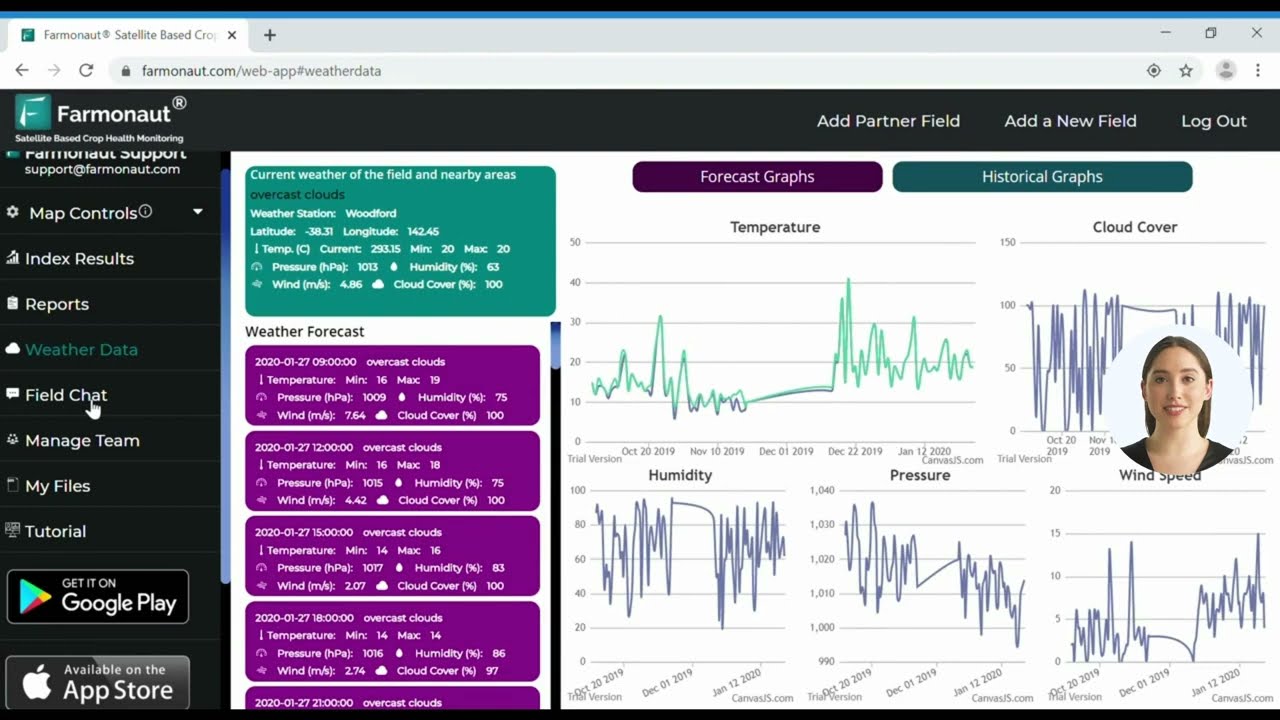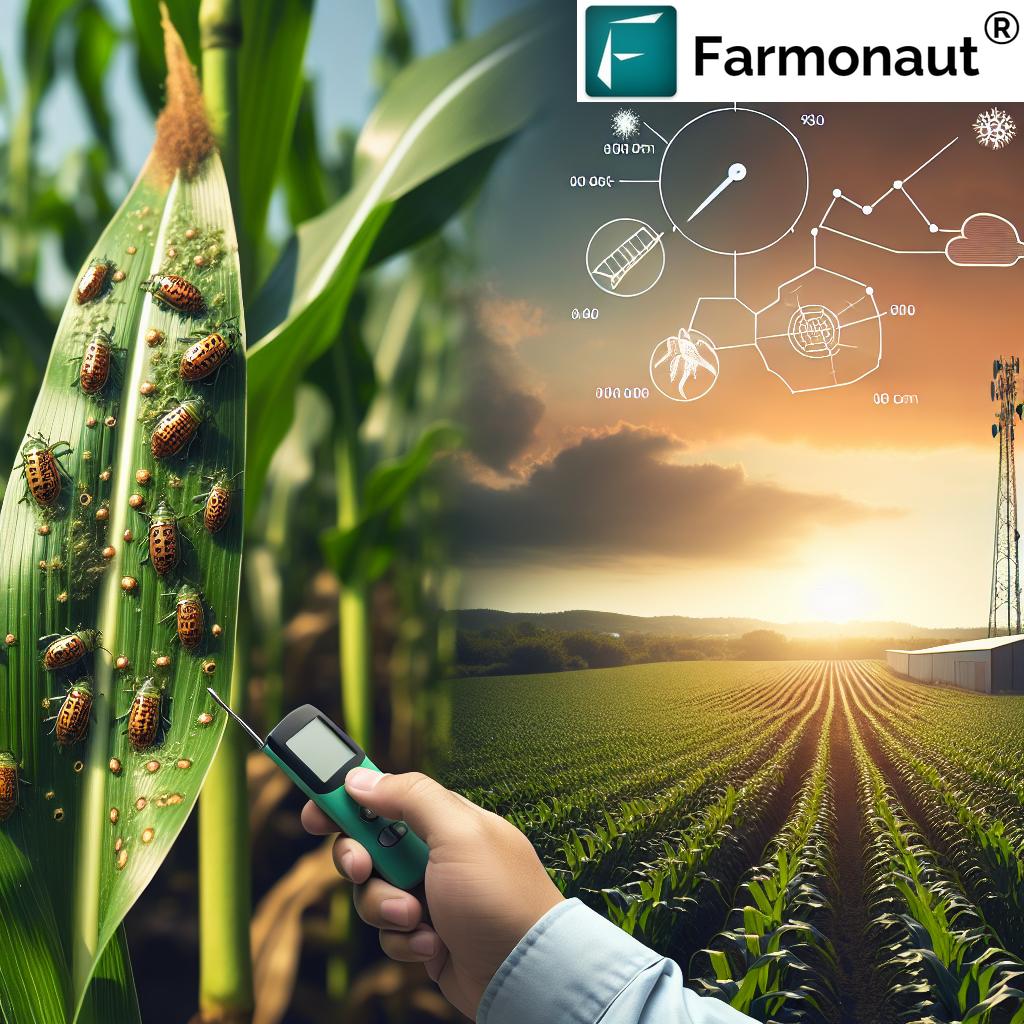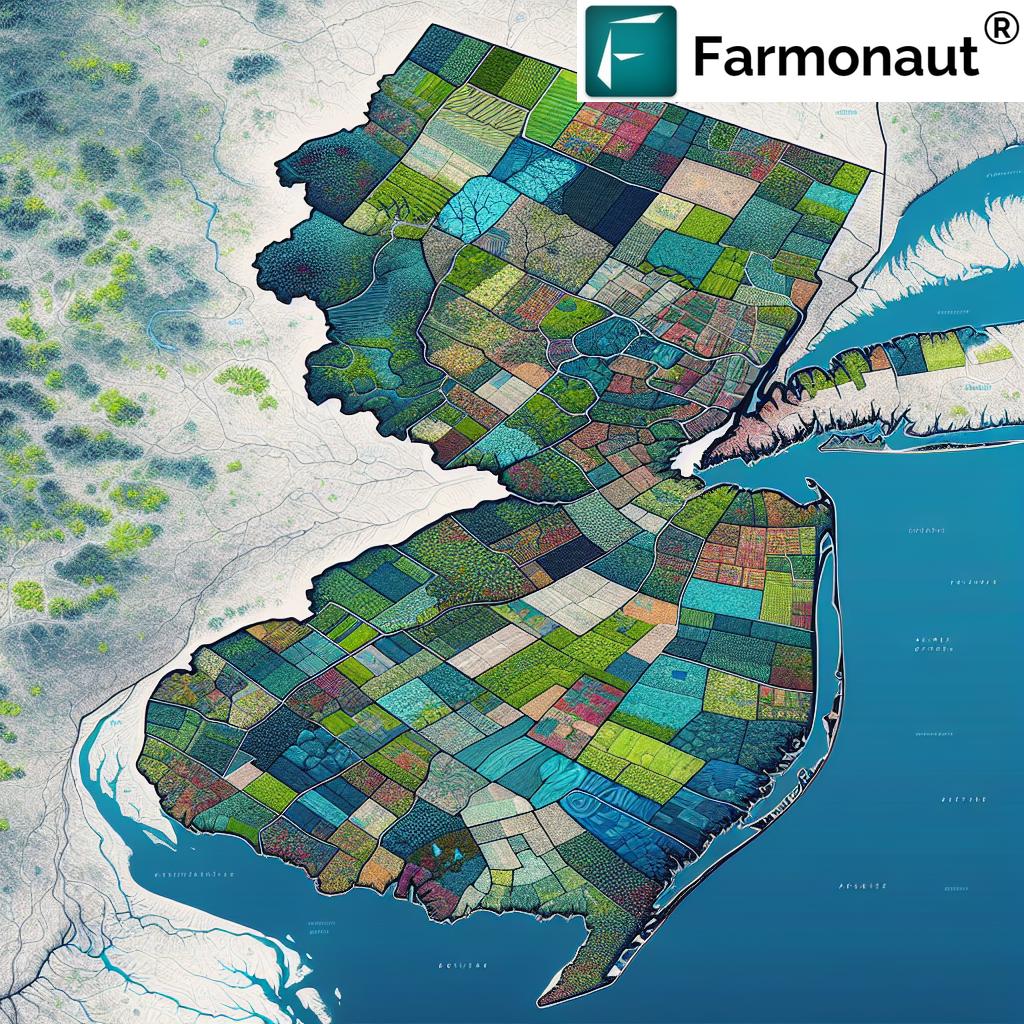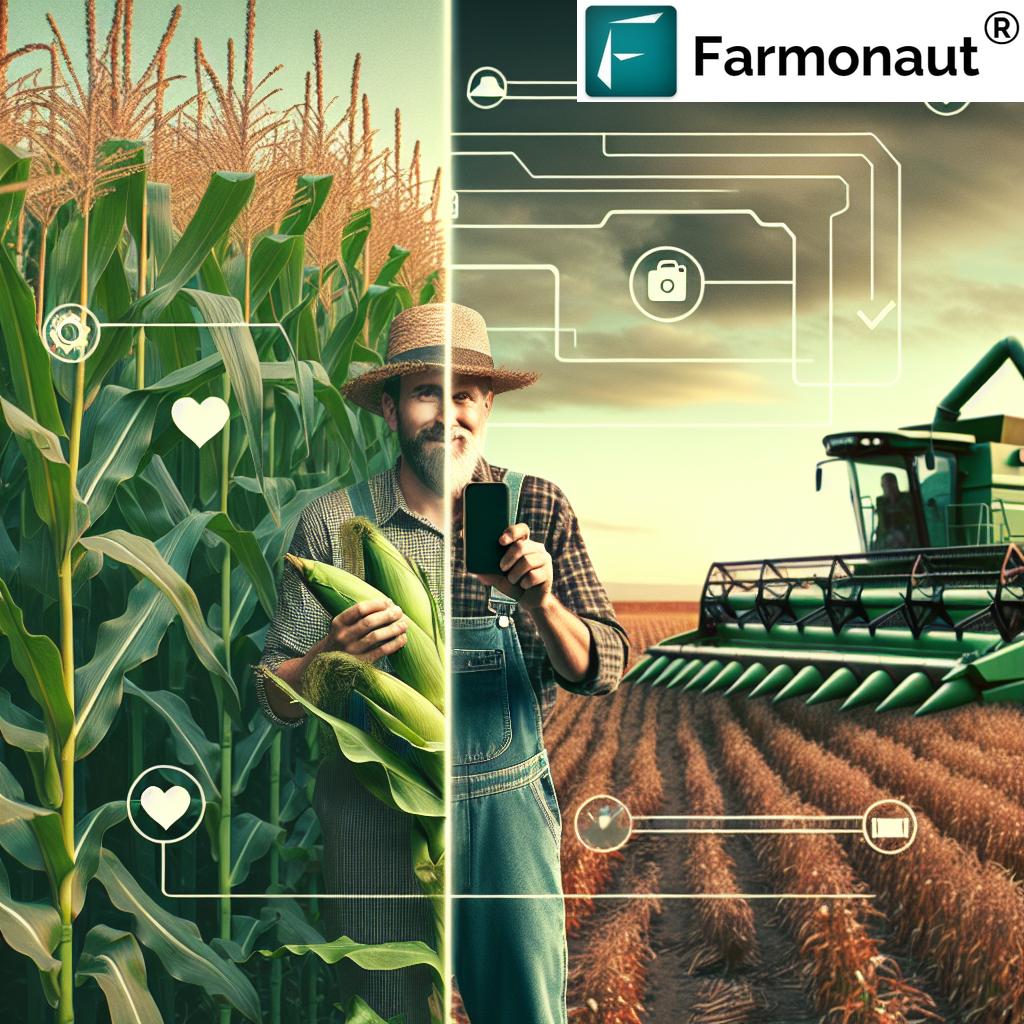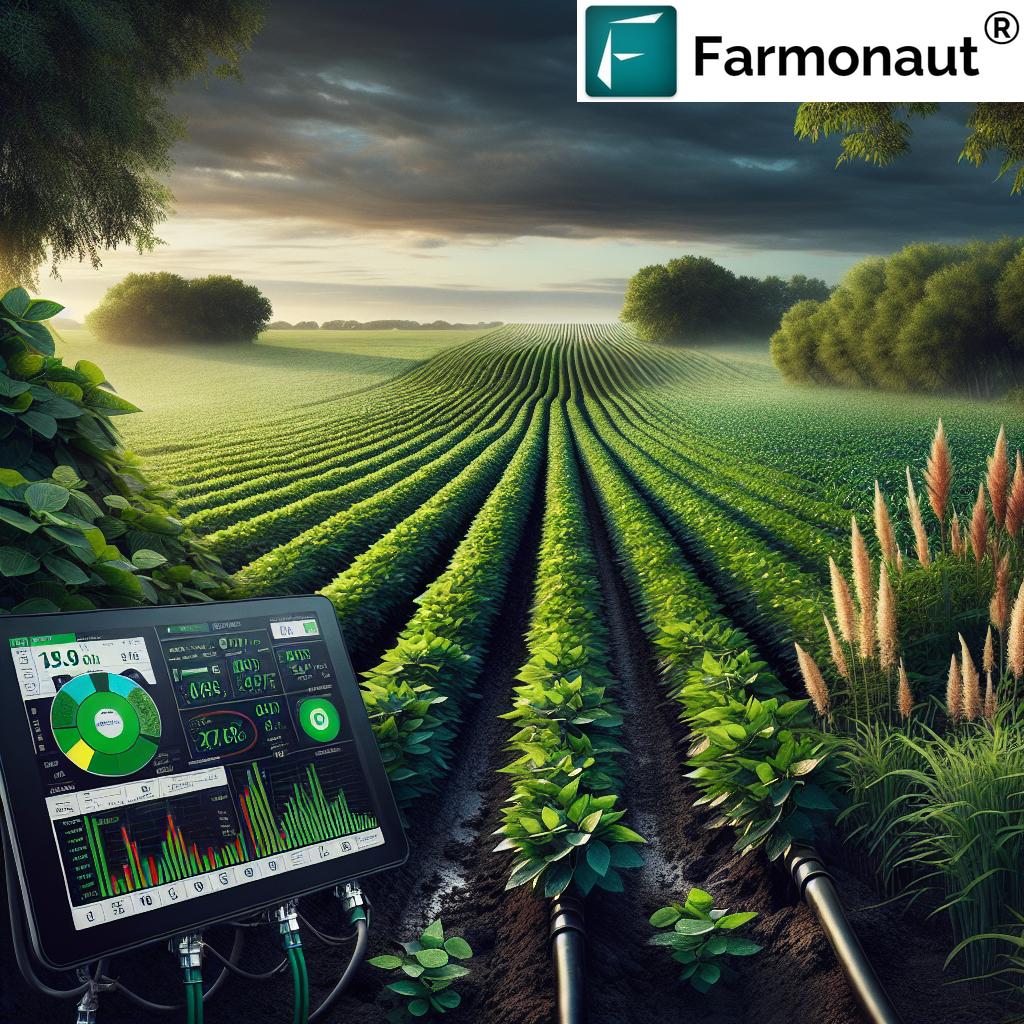US Drone Regulations: Balancing National Security and Agricultural Innovation in North Carolina
“Over 90% of U.S. police departments use drones, potentially impacted by restrictions on Chinese-made models.”
In recent years, we have witnessed a remarkable transformation in the agricultural landscape, driven by the rapid adoption of drone technology. This revolution in precision farming has brought unprecedented efficiency and productivity to farmers across the United States, particularly in states like North Carolina. However, the integration of these advanced tools has not been without controversy, as national security concerns have begun to cast a shadow over the widespread use of Chinese-made drones. In this comprehensive analysis, we at Farmonaut will explore the intricate balance between agricultural innovation and national security, with a specific focus on the implications for North Carolina’s farming community.
The Rise of Agricultural Drone Technology
Agricultural drone technology has emerged as a game-changer for precision farming, offering farmers a cost-effective and efficient means of managing their crops. These unmanned aerial vehicles have revolutionized various aspects of agriculture, from crop monitoring and pest control to irrigation management and yield estimation. In North Carolina, where agriculture contributes a staggering $92.7 billion to the state’s economy, the adoption of drone technology has been particularly impactful.

Farmers like Russell Hedrick have embraced this technology, utilizing drones for crop management and even disaster response. The cost-effectiveness of these tools is striking, with Chinese-made drones often priced at around $35,000, compared to traditional ground sprayers that can cost upwards of $250,000. This significant price difference has made precision farming accessible to a broader range of agricultural operations, leading to optimized fertilization techniques and reduced operational costs.
The National Security Dilemma
While the benefits of agricultural drone technology are undeniable, recent developments in U.S.-China relations have raised serious concerns about the use of Chinese-made drones. As tensions between the two nations escalate, particularly with the potential return of Republican Donald Trump to the presidency, U.S. legislation has increasingly targeted Chinese technology.
Lawmakers such as Rep. Elise Stefanik and Sen. Rick Scott have voiced strong concerns about the national security implications of allowing Chinese drones to dominate the American market. Sen. Scott has drawn parallels between drones and potential surveillance or military threats, highlighting the gravity of the situation. These concerns have led to the inclusion of clauses in recent defense bills that aim to restrict the sale and purchase of Chinese drones within the United States.
The Impact on Law Enforcement and Emergency Services
The potential restrictions on Chinese-made drones extend far beyond the agricultural sector. Law enforcement agencies and emergency services across the country have come to rely heavily on these cost-effective tools for a variety of critical operations. From search and rescue missions to crime scene investigations, drones have become an integral part of modern policing and disaster response efforts.
In Florida, for instance, the implementation of a ban on Chinese drones led to a dramatic decrease in drone utility and performance for state agencies. Similarly, the Kingsport Fire Department faced exorbitant replacement costs when forced to comply with state restrictions on Chinese-made drones. These examples underscore the far-reaching implications of drone regulations on public safety and emergency response capabilities.
The Agricultural Perspective
For farmers in North Carolina and across the United States, the potential restrictions on Chinese-made drones pose a significant challenge to their operations. The affordability and efficiency of these drones have allowed farmers to adopt precision farming techniques that were previously out of reach. By using drones for crop monitoring, farmers can:
- Identify pest infestations early
- Optimize irrigation practices
- Apply fertilizers and pesticides with pinpoint accuracy
- Assess crop health in real-time
These capabilities have not only improved crop yields but have also contributed to more sustainable farming practices by reducing the overall use of water, fertilizers, and pesticides.
“North Carolina’s $92.7 billion agriculture industry could face challenges from proposed drone regulations affecting precision farming.”
The Search for Alternatives
As the debate over Chinese-made drones intensifies, stakeholders across various sectors are actively seeking alternatives. Advocates for drone technology, such as Michael Robbins of AUVSI, have proposed investing in the U.S. drone manufacturing industry to enhance domestic capabilities and create cost-effective alternatives to Chinese products.
However, the transition to new drone technology is not without its challenges. Many organizations face significant hurdles in adapting to new systems, including:
- Retraining personnel on new equipment
- Significant budget reallocations for more expensive alternatives
- Potential loss of functionality compared to established Chinese-made models
These challenges underscore the need for a careful and measured approach to implementing any new regulations or restrictions on drone technology.

The Role of Technology Companies in Agriculture
In light of these challenges, technology companies like Farmonaut are playing an increasingly important role in the agricultural sector. While not directly involved in drone manufacturing, Farmonaut offers advanced, satellite-based farm management solutions that complement and enhance the capabilities of drone technology. Through our web application and mobile apps for Android and iOS, we provide farmers with real-time crop health monitoring, AI-based advisory systems, and resource management tools.
Our satellite-based solutions offer an alternative approach to precision agriculture, allowing farmers to access critical data without relying solely on drone technology. This diversification of tools and technologies can help mitigate some of the risks associated with potential drone restrictions.
Environmental and Infrastructure Implications
Beyond agriculture and law enforcement, the potential restrictions on Chinese-made drones have significant implications for environmental monitoring and infrastructure inspection. Drones have become invaluable tools for:
- Monitoring wildlife populations
- Assessing the health of forests and other ecosystems
- Inspecting bridges, power lines, and other critical infrastructure
- Mapping and surveying land for various purposes
The loss or limitation of these capabilities could hinder efforts to protect natural resources and maintain vital infrastructure across the United States.
The International Perspective
The debate over drone regulations in the United States has implications that extend far beyond its borders. As a global leader in technology and agriculture, U.S. policies on drone usage can influence international trends and regulations. Many countries look to the U.S. for guidance on balancing technological innovation with national security concerns.
Moreover, the restrictions on Chinese-made drones could have ripple effects on international trade and diplomatic relations. As the world becomes increasingly interconnected, decisions made in Washington regarding technology and agriculture have the potential to shape global markets and partnerships.
The Path Forward: Balancing Innovation and Security
As we navigate this complex landscape of drone regulations, it’s crucial to find a balance that preserves national security while fostering agricultural innovation. Some potential solutions include:
- Investing in domestic drone manufacturing to create competitive alternatives
- Developing stringent security protocols for the use of foreign-made drones
- Encouraging international cooperation on drone security standards
- Supporting research and development of alternative precision farming technologies
By pursuing a multifaceted approach, we can work towards a future where American farmers, law enforcement agencies, and other stakeholders have access to the tools they need without compromising national security.
The Role of Farmonaut in the Changing Landscape
At Farmonaut, we recognize the challenges faced by the agricultural community in light of these potential drone restrictions. Our satellite-based solutions offer a complementary approach to precision agriculture, providing farmers with valuable insights without relying on drone technology. Through our API and developer documentation, we enable integration of our technology with existing farm management systems, offering a robust alternative to drone-based solutions.
Comparison of Drone Usage Impacts
| Sector | Current Drone Usage Benefits | Potential Impacts of Restrictions | Proposed Alternatives |
|---|---|---|---|
| Agriculture |
– Precision crop monitoring – Efficient fertilizer application – Cost savings (up to 86% compared to ground equipment) |
– Increased operational costs – Reduced crop yields – Slower adoption of precision farming techniques |
– Satellite-based monitoring (e.g., Farmonaut solutions) – Investment in domestic drone manufacturing – Development of AI-driven ground-based solutions |
| Law Enforcement |
– Enhanced search and rescue operations – Improved crime scene investigation – Cost-effective surveillance (estimated 30-40% cost reduction) |
– Reduced operational effectiveness – Increased response times – Higher equipment costs |
– Development of secure, U.S.-made drones – Increased use of manned aircraft – Implementation of ground-based camera networks |
| Disaster Response |
– Rapid assessment of affected areas – Efficient resource allocation – Improved safety for responders |
– Slower disaster assessment – Less efficient resource deployment – Potential increase in responder risk |
– Use of satellite imagery for initial assessment – Development of ruggedized, U.S.-made drones – Implementation of AI-driven predictive modeling |
FAQs
Q: How will the potential ban on Chinese-made drones affect North Carolina farmers?
A: North Carolina farmers may face increased costs and reduced efficiency in precision farming practices. They may need to invest in more expensive alternatives or adapt to new technologies, potentially impacting crop yields and operational costs.
Q: Are there any U.S.-made drones that can replace Chinese models in agriculture?
A: While there are U.S.-made drones available, they are currently more expensive and may not offer the same range of features as Chinese models. However, increased investment in domestic drone manufacturing could lead to more competitive options in the future.
Q: How can farmers adapt to potential drone restrictions?
A: Farmers can explore alternative technologies such as satellite-based monitoring solutions like those offered by Farmonaut. They can also consider collaborative purchasing of more expensive U.S.-made drones or lobby for exceptions in agricultural use cases.
Q: What are the main national security concerns regarding Chinese-made drones?
A: The primary concerns include potential data theft, surveillance capabilities, and the possibility of drones being used for espionage or sabotage. There are also worries about the Chinese government’s access to data collected by these drones.
Q: How might drone restrictions impact environmental monitoring efforts?
A: Environmental monitoring could face setbacks, with potential difficulties in tracking wildlife populations, assessing ecosystem health, and monitoring pollution levels. Alternative methods may be less efficient or more costly.
Conclusion
The debate surrounding US drone regulations, particularly in relation to Chinese-made models, presents a complex challenge for policymakers, farmers, and various sectors reliant on this technology. In North Carolina, where agriculture plays a pivotal role in the state’s economy, the potential impact of these regulations is particularly significant.
As we navigate this intricate landscape, it’s crucial to strike a balance between national security concerns and the need for technological innovation in agriculture and other vital sectors. The search for alternatives, whether through domestic drone manufacturing or the adoption of complementary technologies like satellite-based monitoring, will be key to maintaining the efficiency and productivity gains achieved through precision farming.
At Farmonaut, we remain committed to providing farmers with cutting-edge solutions that enhance their operations, regardless of the regulatory landscape. Through our satellite-based technologies and AI-driven insights, we aim to support the agricultural community in adapting to these challenges and continuing to thrive in an ever-changing technological environment.
As the situation evolves, we will continue to monitor developments and provide updates on how these regulations may affect the agricultural sector. The future of farming in North Carolina and across the United States will depend on our ability to innovate, adapt, and find solutions that balance security concerns with the needs of our vital agricultural industry.



